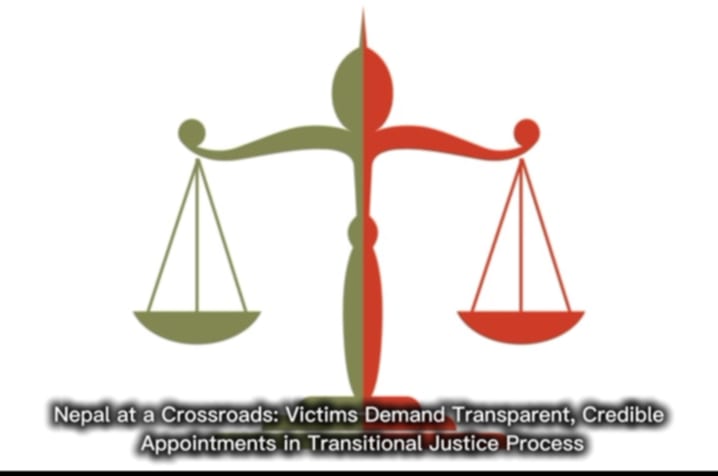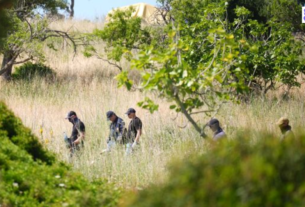Kathmandu, May 13, 2025 – As Nepal stands on the brink of a long-overdue reckoning with its violent past, human rights organizations and survivors of the country’s decade-long civil conflict are demanding immediate reforms to the government’s process for appointing commissioners to its transitional justice bodies.
In a powerful joint statement, Amnesty International, Human Rights Watch, and the International Commission of Jurists (ICJ) have called on the Nepali government to overhaul the current selection process, citing a lack of transparency, political interference, and deepening mistrust among conflict victims.
The focus is on appointments to two key institutions mandated by the 2024 transitional justice law: the Truth and Reconciliation Commission and the Commission of Investigation on Enforced Disappeared Persons. These commissions are tasked with addressing grave human rights abuses committed during Nepal’s 1996–2006 armed conflict between Maoist insurgents and government forces.
Victims Denounce Flawed Process
Dozens of survivors’ groups and victims’ families have outright rejected a recent shortlist of candidates released by the appointments committee, claiming the process was non-transparent and politically motivated. The list reportedly includes individuals with little to no experience in transitional justice, and even some who have defended alleged perpetrators of war crimes.
In a statement signed by 38 victims’ organizations, the groups wrote:
“The shortlist reflects a betrayal of our struggle and suffering. This process has been dominated by political access rather than merit, and it risks destroying trust in the transitional justice process.”
These concerns echo long-standing criticisms of previous transitional justice efforts in Nepal, which have been marred by political interference, incomplete investigations, and delays that span nearly two decades.
A Historic Opportunity at Risk
Nepal’s parliament passed a revised transitional justice law in August 2024 that was cautiously welcomed by victims’ groups and international observers as a workable framework. But the credibility of this law is already under scrutiny due to provisions that could allow amnesty for crimes against humanity hinges on who is appointed to implement it.
“This is not just about administrative appointments, it’s about justice,” said Isabelle Lassée, Deputy Regional Director for South Asia at Amnesty International. “If this process is corrupted by politics, the entire mechanism will collapse before it even begins.”
Urgent Reforms Demanded
The three leading human rights organizations are calling for the government to:
- Publish clear selection criteria
- Expand the pool of candidates
- Consult meaningfully with victim communities
- Hold public hearings for transparency
- Utilize legal authority to extend the appointments process, if needed
“After decades of broken promises, Nepal’s transitional justice process must begin with legitimacy,” said Meenakshi Ganguly, Deputy Asia Director at Human Rights Watch. “That cannot happen without victims at the center of the process.”
International Community’s Role
The international community, particularly the United Nations and major donor countries, is being urged to condition their support on the integrity and inclusiveness of the process. Any assistance, the rights groups argue, should be tied to strict adherence to human rights standards and victim-centered justice.
At a March 2025 event in Kathmandu hosted by the ICJ, Nepal’s Prime Minister and other political leaders publicly committed to a credible, independent transitional justice process. Now, victims and rights advocates are calling on them to act on those promises.
A Warning from Victims: Civil Commission if Ignored
In a powerful declaration, victims’ groups have warned that if the government does not revise the flawed process, they may establish an independent civil commission to investigate conflict-era abuses.
“This isn’t just a bureaucratic failure, it’s a moral one,” said Ian Seiderman, ICJ’s Senior Legal and Policy Director. “Nepal has a rare second chance to right the wrongs of the past. That opportunity must not be squandered.”
The Stakes Are High
With over 60,000 complaints of war-era abuse still unresolved, the appointment of impartial and competent commissioners will be a defining moment for Nepal’s justice system and a key test of its democratic commitment.
As victims await justice, the government must decide whether it will uphold its constitutional and international obligations or allow another chapter of impunity to be written in Nepal’s history.
Bottom Line:
The success of Nepal’s transitional justice process depends not just on laws, but on leadership. Survivors have waited nearly 20 years for truth and justice. The government must now show it is ready to deliver starting with credible, independent appointments.




